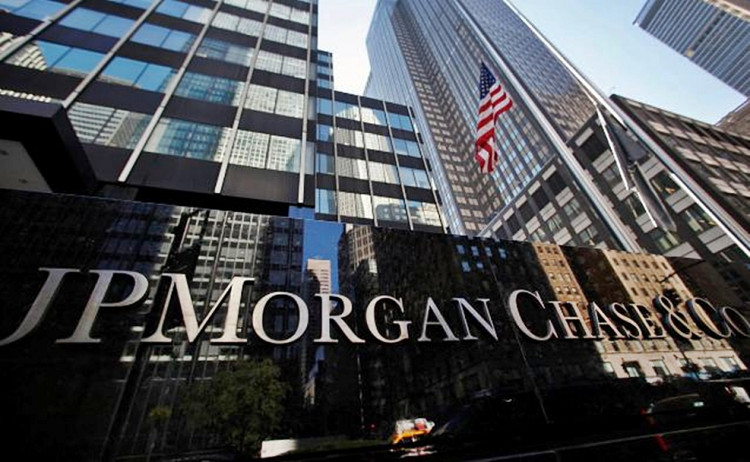J.P. Morgan Asset Management said the United States is in a weak V-shaped recovery, which it called a "steroid kind of recovery," set to dissipate in the fourth quarter as the effects of the federal monetary stimulus begin to fade.
David Kelly, Chief Global Strategist and Head of the Global Market Insights Strategy Team, dismissed the notion the current economic recovery from the COVID-19 economic crisis is a strong "V-shaped" one set to linger until 2021. He argued that once the adrenaline to the economy delivered by fiscal stimulus packages wears-off, growth will weaken.
"It looks like an economic recovery, but it's really sort of a steroid kind of recovery," said Kelly on CNBC Thursday. "As the steroid of fiscal stimulus is removed, the economy is going to grow more slowly ... It's going to grow much more slowly in the fourth quarter than it did in the third."
"We have seen what looks like a V-shaped recovery, but it's really V-interrupted - it's half of V."
Kelly said gaining control of the COVID-19 pandemic is key to any strong and enduring growth. A V-shaped recovery is one in which an economy recovers sharply after a recession.
"You need to deal with the pandemic to have a healthy recovery, it's as simple as that," according to Kelly.
Dealing with the pandemic, however, still appears beyond the capability of the Trump administration. The United States is now battling a dangerous surge in new COVID-19 cases amid a "twindemic" in which the annual flu season and the raging coronavirus pandemic have converged.
The U.S. Centers for Disease Control and Prevention (Centers for Disease Control and Prevention) this week warned about the current "distressing trend" in which new COVID-19 cases are "increasing in nearly 75% of the country."
"This past week, we've seen nearly 60,000 cases a day on average, as well as 700 deaths," said Dr. Jay Butler, Centers for Disease Control and Prevention deputy director for infectious diseases.
"Unfortunately we're seeing a distressing trend here in the United States."
Kelly said full recovery from the pandemic will be reduced to a crawl until industries still shuttered by the pandemic can reopen. In the meantime, massive unemployment is still in the cards despite the U.S. recovering 11.4 million jobs, or half of all positions lost over the past months.
Kelly, however, remains confident a new stimulus package will head-off another unemployment surge. Talks for a new round of trillion-dollar stimulus have gotten nowhere since May after House Democrats passed their $3.2 trillion HEROES Act. Senate Republicans have rejected this bill as too expensive and have proposed spending only $500 billion instead.
"I think we're going to get stimulus anyway," noted Kelly.
"I think people are obsessed with the issue of, do we get stimulus in the next two weeks. What's been going on between the White House and the House Democrats are all to do with politics. After the elections, I think there will be a stimulus package. And in fact, I think if anything there'll be too much stimulus."






